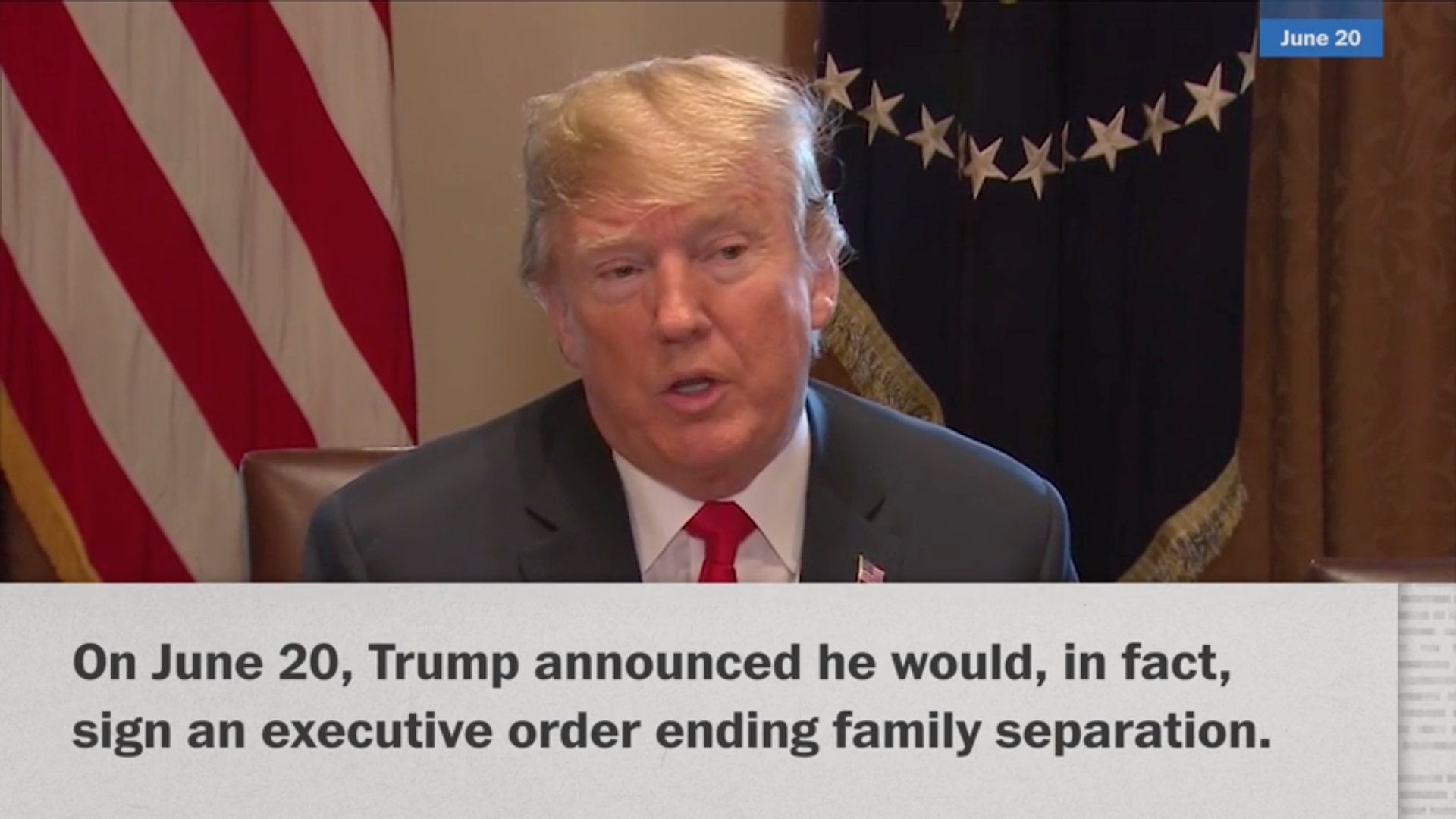
- Select a language for the TTS:
- UK English Female
- UK English Male
- US English Female
- US English Male
- Australian Female
- Australian Male
- Language selected: (auto detect) - EN
Play all audios:
Towards the end of the nineteenth century, the then British Prime Minister, Lord Salisbury, deplored the way public opinion was entering into the delicate realms of national strategy and
foreign policy. He feared that too much popular involvement in the nation’s foreign affairs would be very dangerous. The cacophony of fragmented and volatile public opinion had no place, he
believed, in the tactful diplomatic handling of relations and interests between the great powers. The Third Marquess, who was not only Prime Minister but also Foreign Secretary, was
perhaps right in the context of the world he knew. But that world was fading fast and he was quite wrong if he imagined that the trend to popular and open debate on every aspect of our
country’s international relations could be halted. Indeed, he could scarcely have imagined the state to which we have now come, in which communications technology gives every interest, every
institution, at every level of society and in every part of the kingdom, an international platform – a platform that confers power and causes confusion, as views both baked and half-baked
go out for instant circulation to a hungry media. The great Lord Salisbury would, I am sure, have quickly seen how difficult it would become in the digital age to distil a clear statement
of the nation’s direction and purposes out of all the babble of competing views, and how impossible it would be to keep Britain’s grand strategy under the roof of one Department of State.
Perhaps his decision to keep the Foreign Ministry and the Premiership in one pair of hands – his own — was more prescient than it seemed at the time. SOMETHING IS MISSING That something has
gone missing in our whole foreign policy stance, that it seems to have lost its focus, is certainly now widely recognised. Where we now stand in a fracturing and now intensely dangerous
world of distrust, turmoil and barbarous violence is far from clear. The latest expression of concern about this comes from a group of distinguished former diplomats and other officials
(including the former Cabinet Secretary Lord Sedwill) in a report entitled _The World in 2040. _They want to see a new approach, a new coherence in overseas policies and a wider involvement
by all departments of Whitehall in the nation’s external reach and influence. They also want to mark this shift by moving our diplomats out of Gilbert Scott’s palatial Foreign Office
building in Whitehall — with its huge rooms, gilded ceilings and wide imposing corridors — and into a bright new building. There, so they believe, brainpower will be inspired and language
found to articulate the country’s new mission in an utterly transformed world. Their Report has attracted a good deal of criticism, some of it unfair. Yet in a way they are still clinging to
some of Lord Salisbury’s concerns and viewpoint. They still see foreign policy as an area for governments to shape and diplomats to implement through their skills and machinery. And the
language of great powers and top tables still dominates. Yet missing is an appreciation that deeper forces are now at work in the age of internet governance. We need a more profound
understanding about the way the world now works, and how the UK fits into and adjusts to it. THE NEW INSIGHTS NEEDED First, our relations with other nations, groupings and alliances are now
increasingly in the hands of networks and their platform owners. These networks are interweaving at every level, often outside, or at the edges of, government reach. Professional speaks
to professional, creative arts source to creative arts source, scientist to scientist, university to university, magistrate to magistrate, lawyer to lawyer, parliamentarian to
parliamentarian, interest group to interest group, investor to investor. And, I’m afraid, criminal to criminal as well. The evidence that this distinguished galère of experts haven’t quite
grasped all this massive and constant interchange, let alone the darker side of the world-wide web, comes from a key omission from their Report. There is no mention anywhere of the UK’s
membership of the biggest global organisation of all on the planet, apart from the UN itself. This is the modern Commonwealth, to which about a third of humankind is signed up, with more
countries, especially in Africa, showing an interest in joining, or at least with being in closer association. No treaty or family of treaties binds this enormous association together and
membership is voluntary. And while there is a central Secretariat, it is very low profile. But that is largely because the issues and interests binding this vast group together today are
outside the traditional patterns and values which many used to think the Commonwealth was all about. And it is because the planetary ubiquity of electronic connectivity makes new 21st
century concerns the property, not just of governments and diplomats, but of people in their hundreds of millions. This is what I try to explain in the latest edition of my little book about
the Commonwealth, which I call _Mother of All Networks_. The tiny silicon chip has taken away the monopoly of communication from officialdom, as surely as the printing press took the
monopoly of communication away from the rulers and high authorities five or six centuries ago. This time it is happening even more quickly and with even larger social and political
consequences. Digitalisation has acted like a gigantic clean blood transfusion to peoples through every cell of the Commonwealth network. While all the fundamental values of the
Commonwealth Charter remain, they are being overlaid today by new concerns and a new vocabulary. Even such labels as “developing countries” now sound faintly patronising, while the grand
and simple terminology of the 20th century , such as “the free world”, “East and West”, “the axis of evil” (or its anti-western riposte, “the axis of resistance”), have all been overtaken by
the complexities of a multipolar world of shifting alliances and interests. The independent nations of this new world order have been brilliantly described by a former Director of Chatham
House, Sir Robin Niblett, as “the neo-non-aligned”. They should not be confused with the much fewer “non-aligned nations” of the last century, who angered the then US Secretary of State
John Foster Dulles by failing to distinguish between liberal free world values and the dark tyranny of Soviet-led Communism. Today’s “neo-non-aligned” have no particular wish to conform to a
polarised conception of the world, or to be under either the Chinese or the American hegemon. Many of their peoples are watching Britain closely and ready to stay very friendly. But they
are not impressed if the British look too much like the puppets or poodles of Washington, with its simplified Manichean global view and its hankering to lead the world again and return to
a restored age of American primacy. That lost dream did indeed exist post-1945 and again, for a short time, after the break-up of the USSR in 1991. But that kind of thinking will alienate
young and independent nations, driving Britain away from its real friends. THE DIRECTION OF NATIONAL TRAVEL All this still seems to be absent from much of the thinking of foreign policy and
strategic experts, whether past or present, and absent with it the language to express well the relevant direction in which the British nation ought now to be travelling. What are the
truly big ideas which will fill its sails? And, remembering that a nation or society at peace with itself is by far the best influence for peace more widely in the world, what are the
policies that might lift British governments back into the position of authority and respect they once enjoyed? How do we enable people to trust their leaders, giving them their wholehearted
consent to pilot the country through new and uncharted waters? In a populist age the sustainable and reasonably clear answers are going to come _not_ from the State and its surrounding
coteries of pressure groups and advisory bodies, but from its citizens, who after all, give the State its legitimacy and its financial resources. The winning ideas will be those that are
drawn from a profound understanding of the way the world now works, which will pierce through the fog of information overload and are promoted with wisdom and conviction. No use relying on
public relations experts who miss the real mood, or fashion-obsessed focus groups. And no use drowning a nation’s citizens in endless promises of detailed policy goals that an increasingly
sceptical public doubts will ever be achieved, and certainly not by central government. Higher living standards, more funds for every cause and for every public infrastructure need, familiar
promises of a “better tomorrow” that never materialise — these sound doubly dubious, especially at a time when other, more measured voices are warning of the need to prepare for war and to
think in hard terms about practical survival rather than partisan nirvanas of universal welfare. And no use, again, relying on the old ideological rallying calls of the past, when neither
the collectivist state nor the marketplace plainly any longer have all the answers, and common sense shows clearly that a skilled and innovative mix of the two is now needed. With all the
detail in the world available in a continuous flood, the message people really want to hear from their leaders is how this bewildering flow makes sense, what the real underlying truths are
and where it all is leading. They seek deep reassurance and guidance as to where they belong, what the nation they inhabit now stands for and what position it aspires to in the new global
landscape. Well above all the usual bread-and-butter wants — about which they have heard so many unfulfilled pledges — people are ready to have their minds open to realistic and honest
outlooks, both the dangers and new possibilities, for themselves and for their children, and to have their imaginations fired about the future. FORTY YEARS AGO: A NATION TO LOVE? To some
degree Margaret Thatcher, after a slow start, succeeded almost 40 years ago in reinvigorating the UK, which was a deeply dispirited and demoralised nation when she first took over. But that
sense of pride and purpose has long since melted away and now a new uplifting lead is once again crying out to be articulated. Everyone needs a country to love, and the moment has come for a
profound renewal of the nation state, as a wise former UN Secretary General, Boutros Boutros Ghali, once described it. Where should the British now look for that sense of renewal? Some
British voices have continued arguing that the answer is a return to the European Union. That, they claim, is where Britain’s destiny lies. These voices are not as strong as they were, but
they are still influential. Others put the Atlantic relationship as the top priority. But in reality the first step to restoring national confidence and unity is to show that while the
British are, and will remain, good Europeans (it is after all their immediate neighbourhood), and while relations with America should always remain solid, a modern nation like Britain need
not see itself as bound to either entity when it comes to its global positioning, and that its interests and potential go far wider. The world is now a network in which confident and agile
nations of all sizes can play their part with a mixture of alliances and bilateral links all round — and especially links with the rising powers of Asia, Africa, the Middle East and Latin
America. It will not surprise many to know that one voice of true authority to have spoken out most consistently down the decades in support of this vision of renewal for Britain, and for
all its citizens, is a royal one. It is that of the late Queen Elizabeth II, who clearly set out where the best future for Britain may now lie. “In lots of ways”, she told the nation in her
2009 Christmas Day broadcast, it is the Commonwealth that is “the face of the future”. What she said is probably what most British people feel, although it may not show up on the surface of
opinion polls and tests. (It happens also to be statistically true as well, since two thirds of all Commonwealth citizens are under twenty-nine) . The British are not anti-European, and
certainly not anti-American. And nor are they nationalist in the narrow, obsessive sense that some who call themselves Conservative proclaim. But they do long to make their own special
contribution on the international stage. The Commonwealth of 56 nations offers an amazing soft-power network through which that can be done. The foreign policy experts should listen to them.
The political leaders who follow this royal guidance will strike a deeper chord of sympathy and assent than anything that can be achieved with promises of good times round the corner. They
will also be following popular instincts, as opposed to official instincts. In doing so they will be offering the framework for a truly big new idea around which a divided and disoriented
nation can loyally unite, and thereby regain for government, of whatever party, and for Parliament (both Houses) the trust, authority, respect and capacity to meet great challenges that,
for the moment, it seems to have lost. In a network world, a nation like the UK, with its history and experience, can be most effective if it works at a certain distance from thinking in
terms of blocs and superpowers. “Solid but not slavish” is the neat and correct formulation by William Hague, former Foreign Secretary, of how UK-US relations should be. By analogy,
“containment but cooperation” is the sensible guide for dealing with the Chinese giant. THE NEW PLAYERS AND THE NEW COMMONWEALTH NETWORK This clearing of the air about where the UK should
stand now opens the way for a vigorous and creative development of UK links and interests with the new players on the world stage. Many of them happen anyway to be Britain’s old friends, who
in recent decades had been looking on with some dismay while British policy neglected them in favour of the EU. Top of the list come the rising nations to whom power, both economic and
political, is fast shifting away from the old Atlantic relationship. This is a trend about which one hears little from either US presidential candidate. Both still speak as though
America automatically possessed international leadership. What neither they nor large sections of the US media have grasped, but what the present Foreign Secretary David Cameron seemed to
perceive way back when he was Prime Minister, is that while America is still a mighty economy, its size no longer delivers overwhelming influence. New power centres and alliances have
grown. The world is now multipolar and more complicated. The vast network of the modern Commonwealth provides Britain with a quick way into these new alliances and interests, notably through
links with India, Australia, Malaysia, Singapore, Bangladesh and Canada — to name but a few of the new global players. Indeed, the list of “new friends” on which the British should be
working much harder is not limited to Commonwealth members, close though they can be. Waiting for the British to craft much warmer and stronger links are, for example, the Japanese, who
now long for a restoration of the old early 20th century intimacy. We thought we had sealed a new closeness with Japan in the 1970s and 80s, when Japan moved in, saved our battered motor
industry and helped to rid us of the worst trades union restrictive practices of the time. The 2008-9 world financial crisis and Brexit drove them away, but now they are back, seeking closer
alliances than ever through a massive combat aircraft project and all kinds of security alliance links. Some Middle East Gulf states, too — Kuwait, for example, or Oman — who always admired
the British and wonder where they have gone during the present upheavals. Even some of the newer EU members who look uneasily at Brussels and remember Britain’s old loyalty to Europe’s
smaller and more easterly states are ready for more friendship ties, despite our EU departure — or maybe because of it. As for the other new giants, especially China: this is the time for
the UK to establish its own distinctive relationships, well away from US or EU preconceptions and postures. This needs a lot more subtlety and experience than the American approach. On the
one hand we should certainly be alive to spreading Chinese intrusion in smaller Commonwealth countries, with offers not just of development aid and shiny new roads, sports stadia and
railways, via the Belt and Road Initiative but also of security support. This is where Commonwealth members like the Solomon Isles group, or the East Africa coastal states, or Caribbean
countries, should have full British support in protecting themselves. China’s (alleged) habit of bugging its products, such as cars and white goods, should also be shown up as infantile and
appropriately exposed, ridiculed — and halted. On the other hand, Britain has everything to gain from Chinese trade, as well as from its advanced technologies in some areas. Chasing China
out of all cooperation on rebuilding the British civil nuclear power sector may have satisfied some Sinophobe impulses, but Chinese skilled involvement could easily have been managed without
endangering national security. Too late now: the Chinese have either gone or are on their way. A major plank in our Net Zero strategy has been sawn off. CONCLUSION: DEFENCE AND SECURITY:
THE DILEMMAS WHICH CAN BE RESOLVED So in sum any new British leadership lying ahead would be wise to listen much more closely to what comes from below than from the narrow expertise
above. This is anyway the route along which technology, with all its potential dangers, is taking the world. The State which tries to take on more and more, encounters less and less
success in doing so. Perhaps in modern world conditions the sphere of diplomacy, where failure can lead so easily to violent conflict, is now too serious to be left only to diplomats. In
the UK we can expect to see and should welcome a Parliament not only filled with higher quality Members regaining more trust and respect, but insisting on more powers over treaty agreements,
alliance commitments and international linkages, mostly through far stronger Committee systems for calling the Executive to account. Almost alone amongst parliaments in the democracies,
the Westminster Parliament allows the Government of the day to dictate the overwhelming bulk of the legislative agenda and the size and pattern of the Budget, and hence our general strategic
direction in new world conditions. In a sense, the recent role of the US Congress in foreign policy, and the recent decision to release major resources for Ukraine, where delay has been
frustrating and has caused much head-shaking, is the democratic pattern of the future and the way to put the popular seal on difficult choices and keep it there. Again, on climate issues
and policies, some easing of the pace and pressure of Government measures has been denounced as surrender by some. Yet it is the obviously popular and consensual view to proceed with
policy change at a sensible pace, rather than by the outcry of evangelical lobbies who have the Government’s ear, which is going to produce sustainable and timely results and keep the
path most open and on schedule to a decarbonised future. Again, in the arcane and publicly poorly illuminated area of defence spending, where pundits and retired generals deplore the small
size of the British regular army, there is now a wiser popular approach, tested and put into practice by several of our Scandinavian neighbours. This combines a regular core force with
large numbers of reserves of men and women prepared to be involved in a degree of combat training, technology readiness and back-up. In Britain an army of at least 50,000 could be
mobilised, some in High Readiness Units almost immediately. The guess must be that in practice many times more could be swiftly mobilised in the present climate, following the past decade
of quiet preparation in transforming the old Territorials into a large modern reserve of armed forces. In the digitalised industrial and service age, the workforce from which this
motivated military reinforcement has to come has radically changed in character. Yet scarcely any mention of this appears in the corridors of Whitehall or Ministerial comment or
Parliamentary debate or Reports. The citizens’ army in the digital age will depend on much wider conditions and on grassroots willingness to serve, rather than on Ministry of Defence or
Foreign Office planning. And trans-Commonwealth defence and military cooperation, also quietly growing, is a relatively unsung side of overall deepened defence readiness and capabilities.
Strategically, diplomatic and defence policy should be guided by a bold critique of American misunderstandings of the new world, and an equally bold critique of the wrong direction in
which too many are still trying to take the EU. That in turn will open the way for a truly constructive UK interdependence within the global network, whilst remaining in its balanced role
as a good club member of a reformed Europe, keeping a sound but carefully calibrated friendship with America, and sustaining its pivotal membership of the Commonwealth – which is emerging
as the resilient and flexible model for effective 21st century global relationships. Seen this way, the apparent dilemmas of Britain’s repositioning in a post-Brexit and multipolar world
become little more than the dilemmas of its inner foreign policy tribe, struggling to adapt to novel world trends. The commonsense message of a wider public is that power has greatly shifted
in the digital age of ever growing networks and giant platforms, both globally and within our own society, and will shift further. How quickly the policy-makers adjust to the new
situation will determine whether our future is primarily one of disorder or survival and progress. We must hope that the understanding will come soon, as the dangers mount daily. Then, at
last, to borrow a phrase , we may be truly in a better position to “take back control” of our destiny. _This is an edited version of a speech to the Conservative Foreign and
Commonwealth Council Meeting on 22nd April 2024 at the House of Lords. Lord Howell is a former Secretary of State for Energy and for Transport, a former Foreign Office Minister for
International Energy Security and Minister for the Commonwealth, and a former chair of the House of Commons Foreign Affairs Committee and of the House of Lords International Affairs and
Defence Committee. _ A MESSAGE FROM THEARTICLE _We are the only publication that’s committed to covering every angle. We have an important contribution to make, one that’s needed now more
than ever, and we need your help to continue publishing throughout these hard economic times. So please, make a donation._







